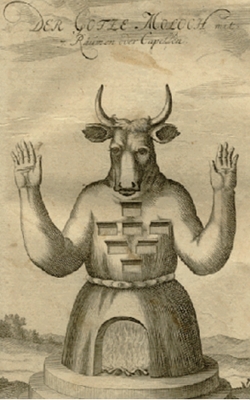CHURCH & MINISTRY
Why is there so much violence in the Old Testament?
By: Dan Barkman

That the Canaanites were a wicked people who routinely engaged in morally repulsive behavior is difficult to deny. Such actions ranged from incest and bestiality to child sacrifice by fire. Given God's holy standard, such behavior seems to cry out to God for judgment. Even so, the Book of Genesis tells us that God was patient with them as "the sin of the Amorite was not yet filled up" (Genesis 15:16). Yahweh's patience extended for hundreds of years before He ordered the destruction of these nations.
As Dr. Paul Copan has noted, in ordering the Israelite attack on Canaan, God enacted what was essentially a form of corporate capital punishment on a culture that were guilty of the most heinous of crimes. This was not some type of indiscriminate violence against unassuming peoples. Moreover, several Old Testament scholars have noted that all of the battles that were approved by God after the time of Joshua were defensive in nature. Not every battle recorded in the Old Testament was the result of Israelite aggression. In addition, God's judgment on Canaan involved exceptions for those that were willing to turn to Him (e.g., Rahab and her family).
The ordering of the death of children, however, continues to remain the most difficult of Old Testament ethical issues. Even if God had morally justifiable reasons to execute the Canaanites for their crimes, surely this did not apply to their children. How could Yahweh have ordered the killing of every Canaanite-including their children? Here we should remember that an argument can be made from Scripture that all children who die in childhood (prior to an age of moral accountability) will be saved. Texts such as 2 Samuel 12:23 and Matthew 19:14 seem to imply just that. Isaiah 7:15-16 also seems to hint at an age of moral accountability, prior to which, a child may not be morally capable of discerning right from wrong, and thus, not be guilty of any personal sin (despite having been born sinful in Adam). If this reasoning is correct, by taking the lives of these children, God may have ensured that they would enter His eternal kingdom — a scenario that is difficult to envision if God had allowed them to live into adulthood .
In conclusion, while God's judgment of the Canaanites displayed His wrath against sin, His love and compassion were displayed in Christ Jesus. The same God who judged the Canaanites for their wickedness came to Earth in Jesus Christ to die a barbaric atoning death for the sins of the world (1st John 2:2) while we were still His enemies (Romans 5:7-8). All of the difficult examples of violence in the Old Testament must be seen in light of God's last and definitive revelation of Himself in Jesus Christ — a man who was the embodiment of mercy and compassion.
Image Credit: Unknown; "The idol Moloch with seven chambers or chapels"; c. 18th c.; from Johann Lund's Die alten judischen Heilithumer; pg. 564; Public Domain
comments powered by Disqus
Published 2-7-12

